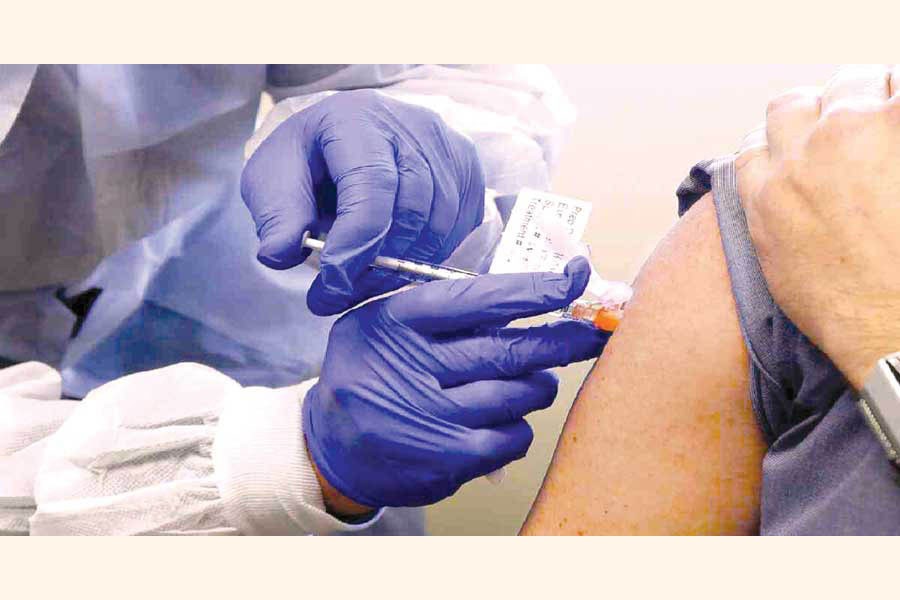Vaccine still a challenge for Bangladesh, many others, says Dr Friedman

Published :
Updated :

As the world awaits a Covid-19 vaccine, a US public health expert says the vast majority of people in Bangladesh and other parts of the world will have to wait a bit longer than expected due to limited global capacity of vaccine production.
"It's going to take time for the vaccine production to get a level where you can see a real impact," Country Director of Centres for Disease Control and Prevention (CDC) Dr Michael Friedman said in an interview.
He said the vast majority of people have to wait a while - a long while, which he says, is a little bit unfortunate but that the reality of the world.
Dr Friedman, having a diverse 27 years of work experience in the US and the global stage, said vaccine is becoming very interesting globally, and three vaccines are showing very positive results.
"This is very exciting news for the world. Unfortunately, I still believe that it is going to take time to get enough vaccines in the first six months to really make a difference," he said.
Dr Friedman said this is true for many parts of the world, including Bangladesh, as it takes time to develop capacity.
The current world population is around 7.8 billion and over 15 billion does of vaccines are needed to address it globally.
The US expert said only 7 per cent people of the world will be covered in the first six months considering the production capacity of three promising vaccines.
"So, we’ve to be very realistic here that the vast majority of people may have to wait for a year. It could be more than a year," he said, adding that he sees a real challenge for Bangladesh.
Dr Friedman hinted that most of the vaccines will go to USA and European countries as there are issue of prepaid (to purchase vaccines) and they are investigating in the vaccine producing companies to get vaccines on priority basis.
He also said many countries will show their high infection rates of coronavirus as the reason. "So, in the first six months, it's not going to be easy for many countries to get enough vaccines."
The US expert said developing one’s own capacity and doing collaboration is the best way to get enough vaccines, reports UNB.


 For all latest news, follow The Financial Express Google News channel.
For all latest news, follow The Financial Express Google News channel.